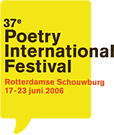Poet
|
Ewa Lipska 1945-... country: Poland language: Polish |
Publications (selection): Wiersze (1967); Drugi zbiór wierszy (1970); Trzeci zbiór wierszy (1972); Czwarty zbiór wierszy (1974); Piaty zbiór wierszy (1978); Dom spokojnej modosci (1979); Nie o smierc chodzi, iercz o biay kordonek (1982). (1945) was born in Kraków. After graduating from the Kraków Academy of Arts she worked as an editor for the city’s leading literary publishing house Wydawnictwo Literackie and for several years as poetry editor of the monthly magazine Pismo. Since 1992 she has lived and worked in Vienna. Besides her poetry, which won her many prizes and was widely translated, she writes prose, plays and lyrics. She made her début in 1967 with her collection Poems. In the Polish poetic landscape, Ewa Lipska stands out all by herself. Despite her strong involvement with her own generation, her work differs markedly from that of other débutants of the 1960s: Stanislaw Baranczak, Ryszard Krynicki, Julian Kornhauser and Adam Zagajewski. In her lucid, individualistic poetry the realities of past and present are treated in too idiosyncratic a manner for her to fit in this group of ‘New Wave’ poets. Her self-imposed loneliness, which never deteriorates into bitter isolation, does not repel through hermeticism; it rather entices the reader to come closer. This appeal owes much to the fact that the ‘I’ in her poems speaks from a strongly personal perspective. In this she resembles her famous fellow-Krakówian Wislawa Szymborska, with whom she shares a similar critical moralism and a comparable form of light irony. Ewa Lipska writes concrete poetry, sparing of words. She is suspicious of words. She does not believe in language being capable of fostering understanding between people. That is why she likes to juxtapose words in her poems so as to force a confrontation. Her scepsis not only exposes the jargon of officialdom or propaganda in whatever form, but especially the language of daily life, e.g. that between men and women. Thus the reality created in Lipska’s poems is often a disconcerting one. |


